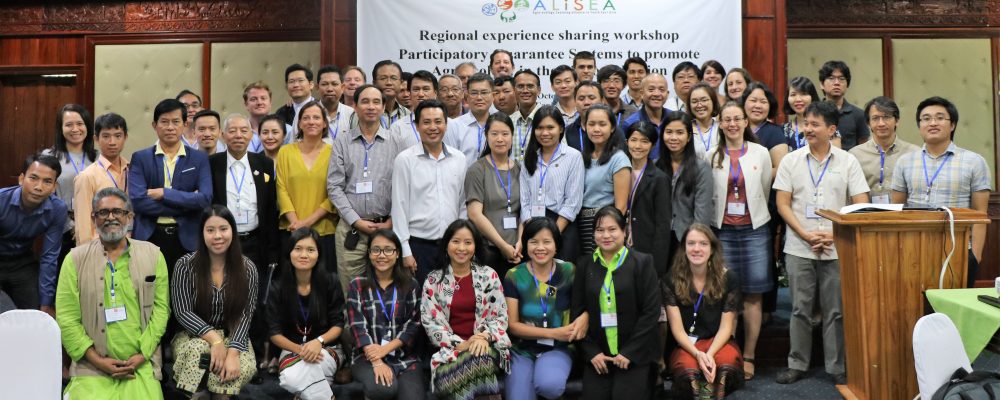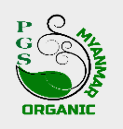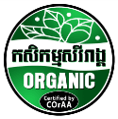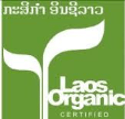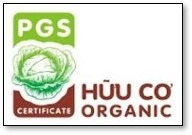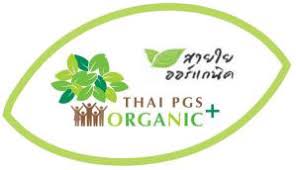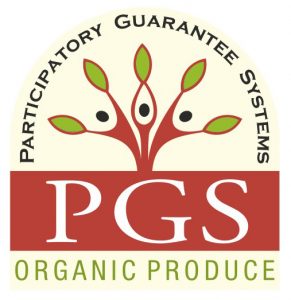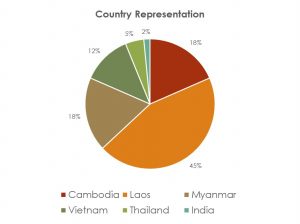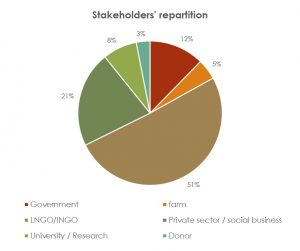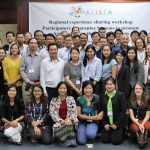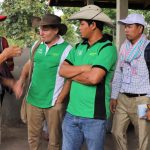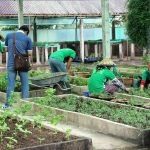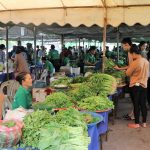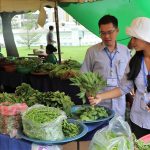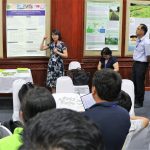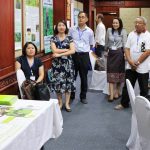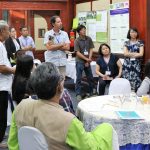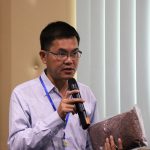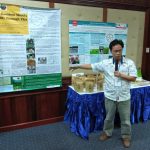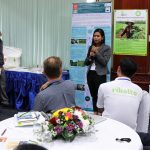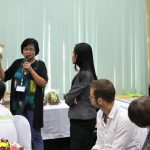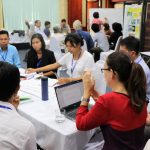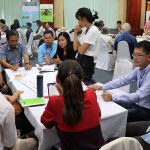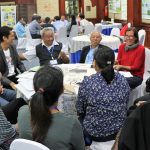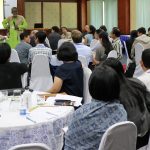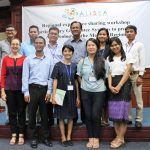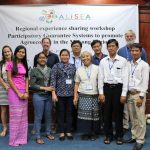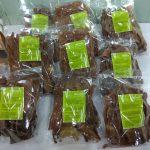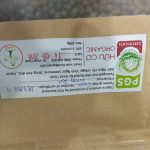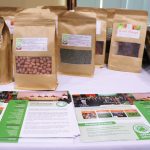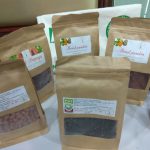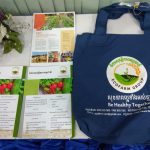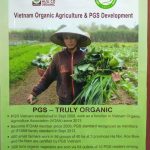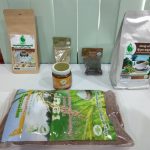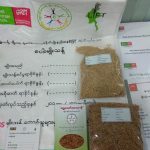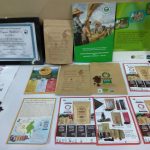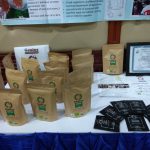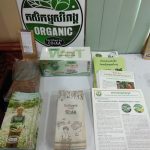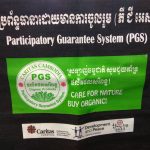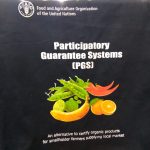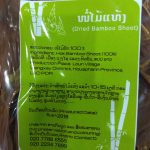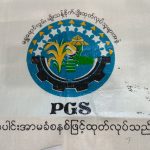On the 1 – 3 of October 2018, over 65 participants from 12 nationalities coming from 6 countries (Cambodia, Laos, India, Myanmar, Thailand, Vietnam) and from different background (Government agencies, Research Institutes, Universities, Development practitioners and private sector) gathered at the Vansana Riverside Hotel in Vientiane, Laos, for a Regional experience sharing workshop about Participatory Guarantee Systems (PGS) to promote Agroecology in the Mekong Region.
This workshop was organized by GRET in the framework of the Agroecology Learning alliance in South East Asia (ALiSEA) with the financial support from the French Agency for Development (AFD) and the Conseil Général des Hauts de Seine (CG92).
Participatory Guarantee Systems (PGS) emerged over 40 years ago, as “locally focused quality assurance systems […] based on the active participation of stakeholders and built on a foundation of trust, social networks and knowledge exchange.” (IFOAM-Organics International, 2008). In several European countries (France, Italy, Spain, Portugal, Japan) organic farmers were initially inspected by committees that involved farmers as well as retailers, processors and/or consumers (Sylvander, 1997). Later on, PGS were revived in Brazil (where alternatives to certification have been sought since the 1990s), India and Mexico (Fonseca et al., 2004; Khosla, 2006; Nelson et al. 2016). Today, PGS are recognized as a suitable alternative to third-party certification for smallholders for several reasons: 1/ the cost of participation is much lower, and mostly takes the form of voluntary time involvement rather than financial expenses (May, 2016); 2/ by developing trust and mutual understanding between farmers and other stakeholders, PGS help develop multi-stakeholder dialogue and collective learning processes (PGS is often characterized as “knowledge intensive”); 3/ as a result, PGS are powerful instruments to stimulate local market development as they play a key role in developing consumer confidence in local produce.
PGS are therefore particularly relevant for organic and agroecological products in the Great Mekong Sub region (GMS), where a large majority of producers are smallholders who could benefit from a low-cost and adaptive certification system to access niche markets with premium prices and thereby foster organic and agroecological farming in the sub region. Moreover, recent studies (Vagneron et al., 2015, Vagneron et al., 2018) show the extent of consumer concern regarding food safety, and consumer ignorance regarding sustainable production methods in agriculture.
Under the ALiSEA Small Grant Facility, 3 initiatives have been supported to promote PGS in different GMS countries:
- Cambodia: Promoting organic vegetable through customer engagement in PGS https://ali-sea.org/item/alisea-sgf-promoting-organic-vegetables-through-customer-engagement-in-participatory-guarantee-systems-pgs/
- Myanmar: Improvement of Organic – PGS Certification Awareness https://ali-sea.org/item/alisea-sgf-improvement-of-organic-pgs-certification-awareness/
- Vietnam: Capitalization of Participatory Guarantee System experiences in Vietnam for upscaling & institutionalization (https://ali-sea.org/item/alisea-sgf-capitalisation-of-participatory-guarantee-system-experiences-in-vietnam-for-upscaling-institutionalisation/)
In addition, GRET as an organization, is also directly involved in promoting PGS:
- Cambodia: PGS for agroecological vegetable production in the province of Siem Reap (APICI Project, https://bit.ly/2mk9V4X)
- Laos: PGS on dried bamboo shoot (aiming at export market to Vietnam), Province of Houaphan
- Myanmar: PGS for good quality paddy seed in the Ayeyarwady Delta
In addition, FAO has also implemented together with the Ministries of Agriculture (Lao PDR, Cambodia), international partners such as IFOAM-international organics, Asian Development Bank (ADB), Earth Net Foundation (ENF) and many other local partners, a pilot project aiming at promoting PGS between 2015 and 2017: “Small-Scale Farmer Inclusion in Organic Agriculture Development through Participatory Guarantee Systems (PGS)”
The objectives of the workshop were:
- Sharing experiences in the implementation of PGS from the perspective of different stakeholders
- Identifying and better understanding the constraints to the development of genuinely participatory PGS
- Drawing operational and policy recommendations for an improved and widespread implementation of PGS across the Mekong Region
And it followed a 3 steps approach…
- A Field visit to provide participants with a first-hand experiencing organic agriculture in Laos (visit to 2 different farms, and to the Vientiane Organic Market) and opportunities for informal networking and get to know each other among workshop participants
- A full day dedicated to take stock of existing initiatives & knowledge about PGS in the GMS through Key note presentations, Case studies addressing diversity of PGS initiatives across the Mekong Region and a Knowledge fair & Poster session
- A full day of Reflecting & working collectively with group work to further develop PGS at country level & a World café to identify best practices & policy recommendations for development practitioners, policy makers and private sector
Hereafter are the different presentations that were made throughout the workshop:
- Setting the stage
Setting the scene: Why and how certify?
Participatory Guarantee Systems (PGS) for Organic Agriculture in Asia
- PGS addressing commodities
Vegetable: PGS development in Vietnam (RIKOLTO) Participatory Guarantee Systems (PGS) in Cambodia (CARITAS)
Rice quality seeds: Paddy quality seed production (QSP) certified through PGS in Delta (GRET)
Non-Timber Forest Products: Development of Multi-stakeholders and Sustainable Bamboo & Rattan value chains in Lao PDR (GRET)
Coffee: Myanmar’s Experience in PGS Organic Certified Coffee (Genius Coffee)
- PGS policy frameworks
GDA – PGS development in Cambodia
Overview of the Status of PGS in Lao PDR
Vietnam new policies supporting organic agriculture
Sharing Participatory Guarantee System (PGS) Experiences in Myanmar
- PGS & CSO
Brief History of MOGPA (Myanmar)
The experience on applying PGS in Ben Tre Province, Vietnam
The Timbaktu Collective (India)
A Decade story of Organic PGS Vietnam
- PGS & Private sector
PGS implementation and market linkage with private sector in Cambodia
Organic PGS in Thailand (Greenet)
- Broadening the scope
WCS Compliance based conservation enterprise
Broadening the scope…”Mindful Markets Asia Forum & social enterprise course”
Proceedings of the workshop with consolidation of the different inputs from the group works as well as IEC materials and other support document developed by the participants are available here:
Here is already a short selection of relevant documents in regards to PGS in the Mekong region:
- PGS development in Vietnam
- Participatory Guarantee Systems (PGS) for Sustainable Local Food Systems (FAO / IFOAM, 2018)
- PGS handbook for the Greater Mekong Subregion (GMS): How Participatory Guarantee Systems can develop and function (ADB / FAO / IFOAM, 2017)
- Constructing markets for agroecology: An analysis of diverse options for marketing products from agroecology (FAO, INRA, 2017)
- Innovative Markets for Sustainable Agriculture. How innovations in market institutions encourage sustainable agriculture in developing countries (FAO, 2016)
- Participatory Guarantee Systems (PGS): overview and reflections (IFOAM, 2015):

